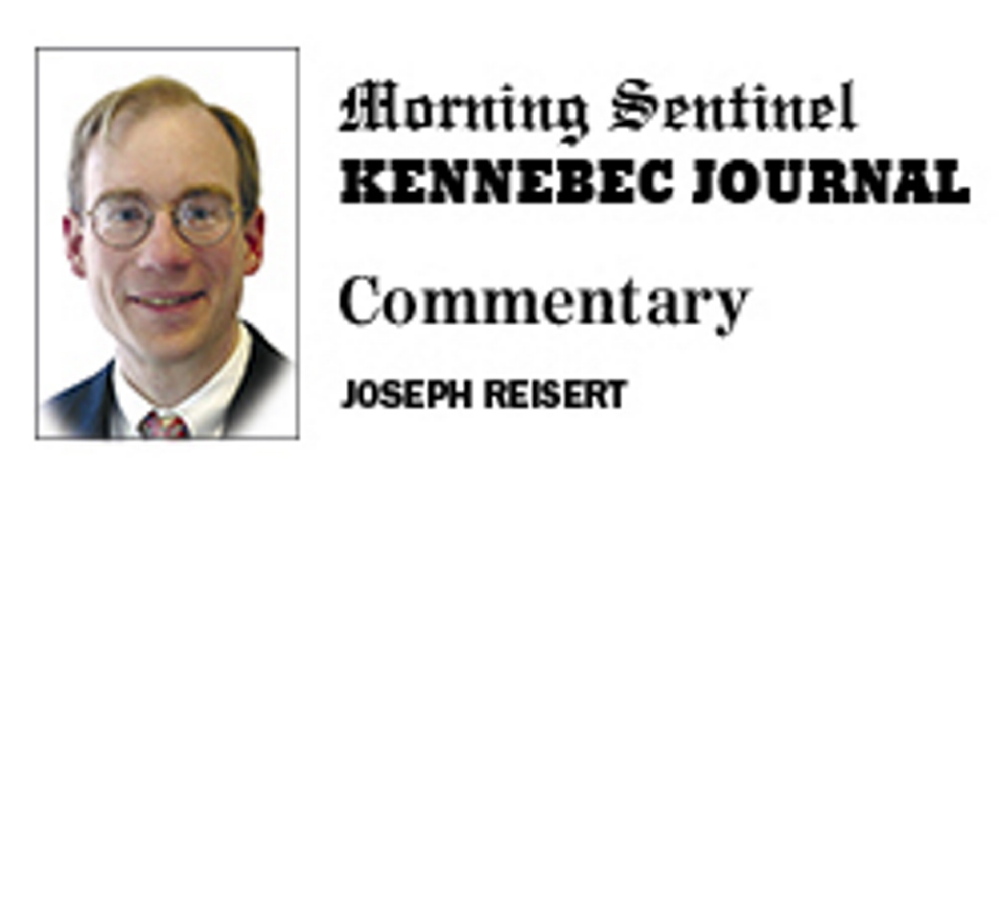At Thanksgiving, we celebrate the spiritual foundation of America, just as we celebrate the political foundation of the United States on the Fourth of July. In some ways, these two distinctively American holidays are fundamentally opposed: Thanksgiving is about gratitude and dependence, about cherishing the good things we enjoy that we have not ourselves made; the Fourth of July is about indignation and independence, about honoring the patriots who were so angry at injustice that they risked war to assert their right to live freely.
But in a deeper sense, the spirit of Thanksgiving and the spirit of Independence are complementary. As Alexis de Tocqueville observed in “Democracy in America,” what has made our country uniquely successful — the world’s first, large-scale democratic state — was the fact that it combined the spirit of religion with the spirit of freedom.
Although the Pilgrims who landed at Plymouth were not the first Europeans in North America to have set aside a day to give thanks to their Creator for the blessings Providence had bestowed upon them, it was the Pilgrims’ harvest feast of 1621 that set the template for this distinctively American holiday.
That fall, the English settlers who had crossed the Atlantic on the Mayflower had a lot to be thankful for. Persecuted for their unorthodox religious beliefs, they had forsaken the comfort and safety of civilization in the Old World with the hope of building a better world in the New.
When they arrived off the Massachusetts coast, in the winter of 1620, the hard reality of their situation confronted them. Before them lay what their governor William Bradford called in his history “Of Plymouth Plantation,” a “hideous and desolate wilderness,” and behind them, “there was the mighty ocean.”
They had no houses to live in, no friends to welcome them, no one on Earth to help them. With good reason, Bradford asked: “What could now sustain them but the Spirit of God and His grace?”
Writing decades later, in the midst of a thriving colony, Bradford still was grateful for the grace that enabled those first colonists to last through that terrible winter and to rejoice after a plentiful summer and celebrate a bountiful autumn harvest.
Addressing us, “the children of these fathers,” he tells that we should remember that “our fathers … came over this great ocean, and were ready to perish in this wilderness; but they cried unto the Lord, and He heard their voice and looked on their adversity.” Thus he says that we should, as they did, give thanks and praise to God.
Not everyone who celebrates Thanksgiving today has William Bradford’s Christian faith. But his central message has a universal significance.
We do not make ourselves, and we did not make this world. The air we breathe, the sun that lights the day, the starry heavens we admire at night — none of these was made by human hands, yet they sustain and preserve us. The parents who gave us life, the other people in our lives who also have loved us and nurtured us — how many of these have given us gifts we neither deserve nor can ever repay?
In a fundamental sense, we are dependent for our very survival on a grace we did not earn, and which can never be earned, and for which expressions of gratitude and thanks are the only proper reply.
How different, at first sight, is the spirit of independence. At the heart of the Declaration of Independence is a list, not of things to be grateful for, but of grievances. After such a “long train of abuses and usurpations,” the members of Congress argued that it was their right and their duty to “throw off” the King’s government and to erect their own constitutions and laws.
Compared to the “manly firmness” of the revolutionaries and patriots who stood up and asserted their rights, the humble gratitude of Bradford and his Pilgrim companions may seem weak and meek. But if we look more deeply, we will see that the Pilgrims’ grateful awareness of all that Providence had done to sustain them also inspired them as they undertook to build a new home for themselves, where they could live and worship God in freedom.
And we will see that the revolutionary patriots’ assertion of their political independence was grounded in the grateful recognition that they had been “endowed by their Creator” with “unalienable rights.”
Thankfulness and independence: they’re as American as turkey and pumpkin pie — and just as good for you.
Joseph R. Reisert is associate professor of American constitutional law and chairman of the department of government at Colby College in Waterville.
Send questions/comments to the editors.



Success. Please wait for the page to reload. If the page does not reload within 5 seconds, please refresh the page.
Enter your email and password to access comments.
Hi, to comment on stories you must . This profile is in addition to your subscription and website login.
Already have a commenting profile? .
Invalid username/password.
Please check your email to confirm and complete your registration.
Only subscribers are eligible to post comments. Please subscribe or login first for digital access. Here’s why.
Use the form below to reset your password. When you've submitted your account email, we will send an email with a reset code.